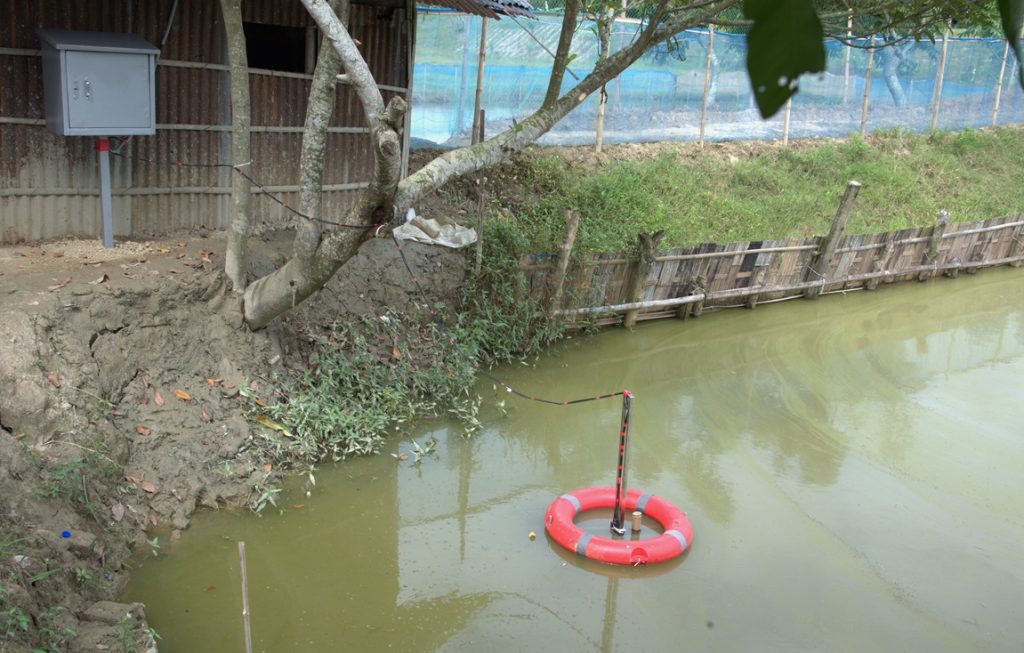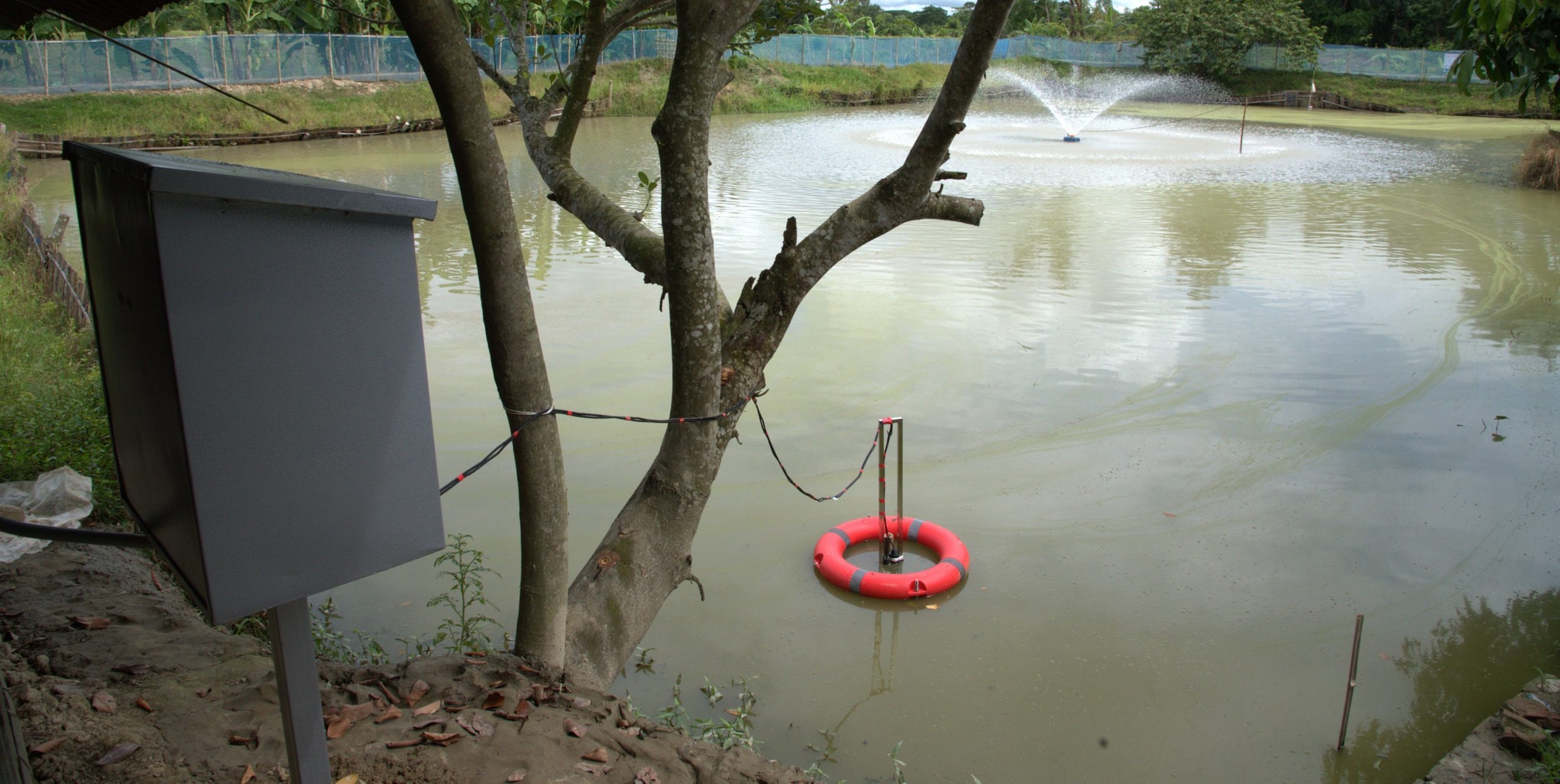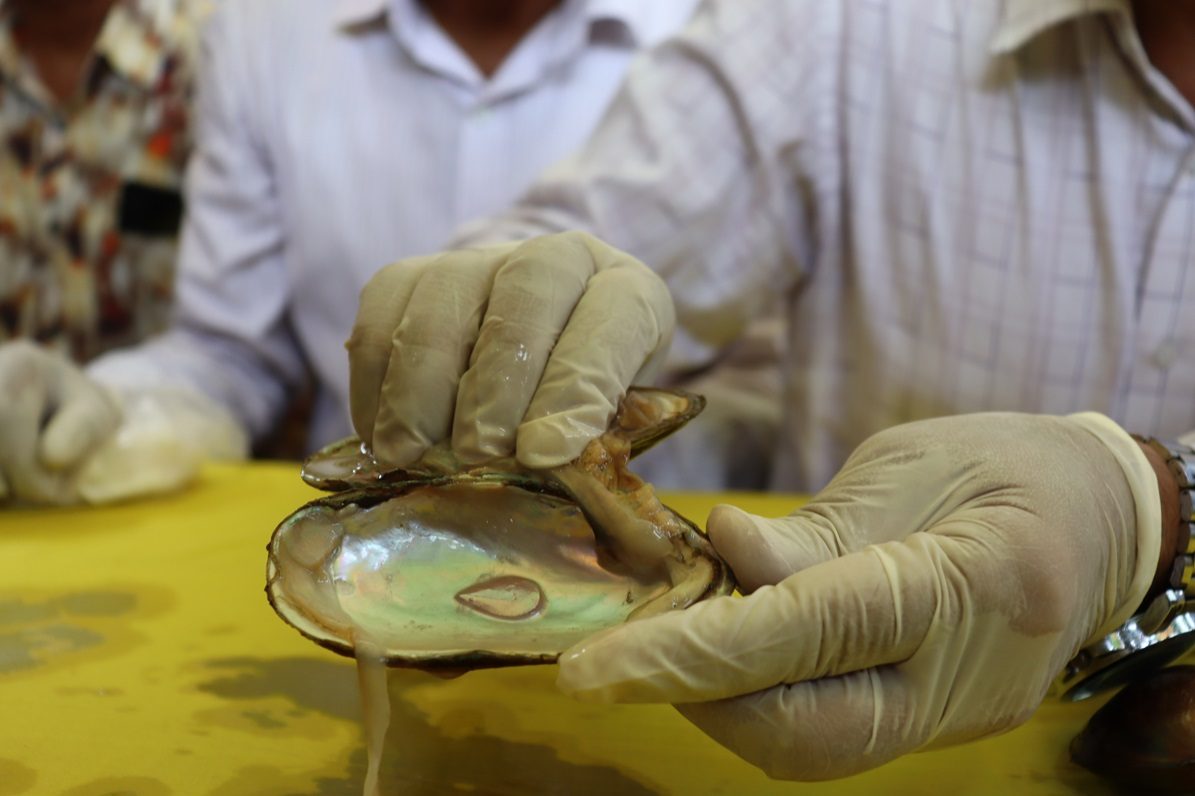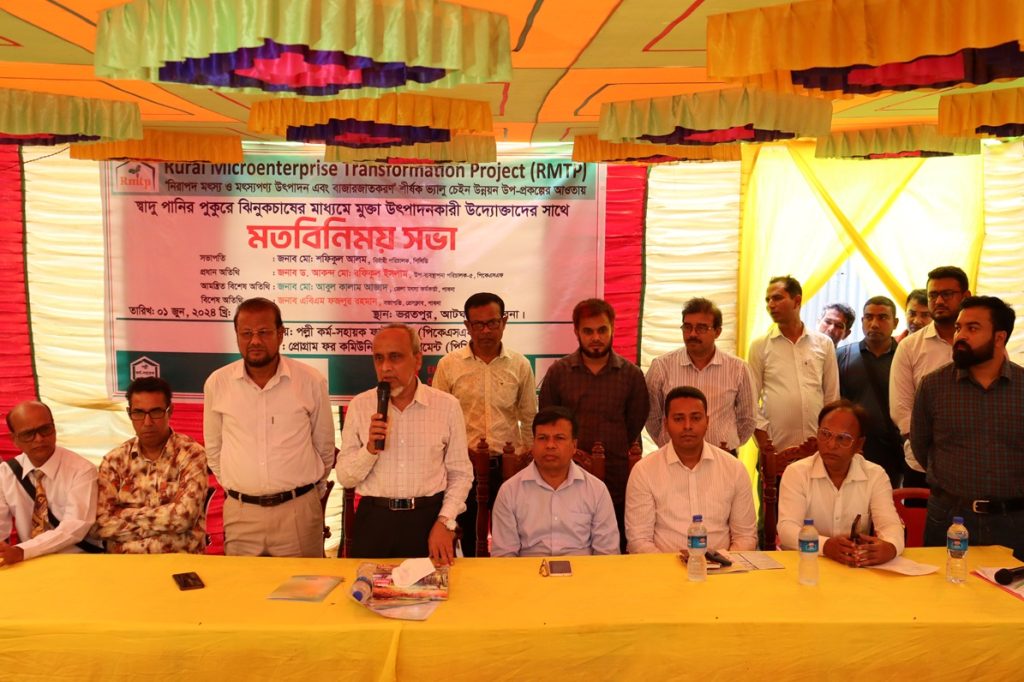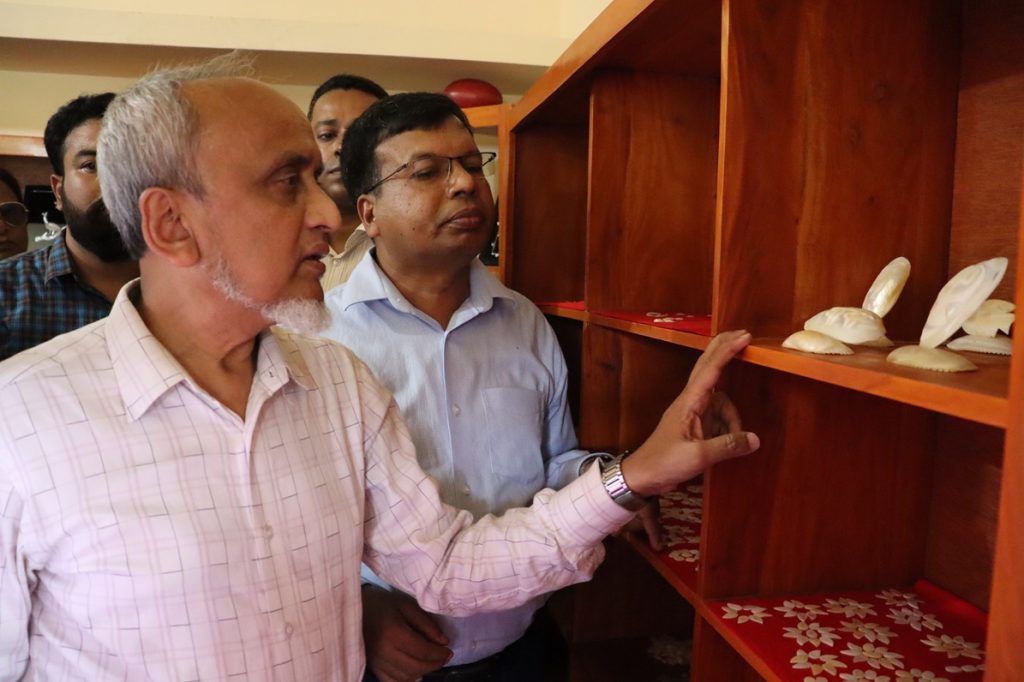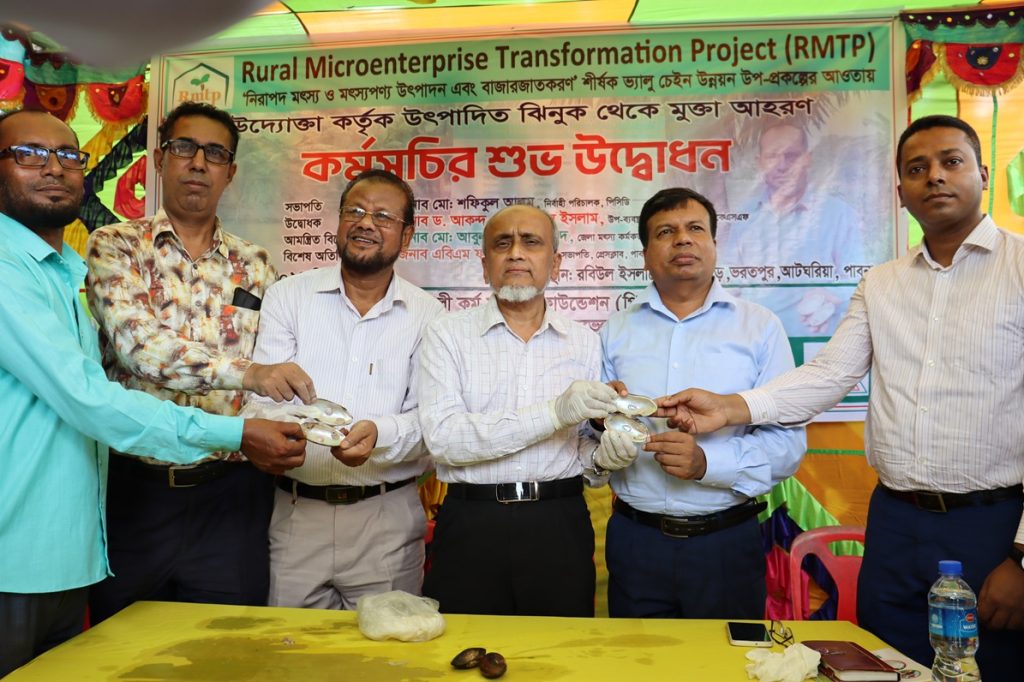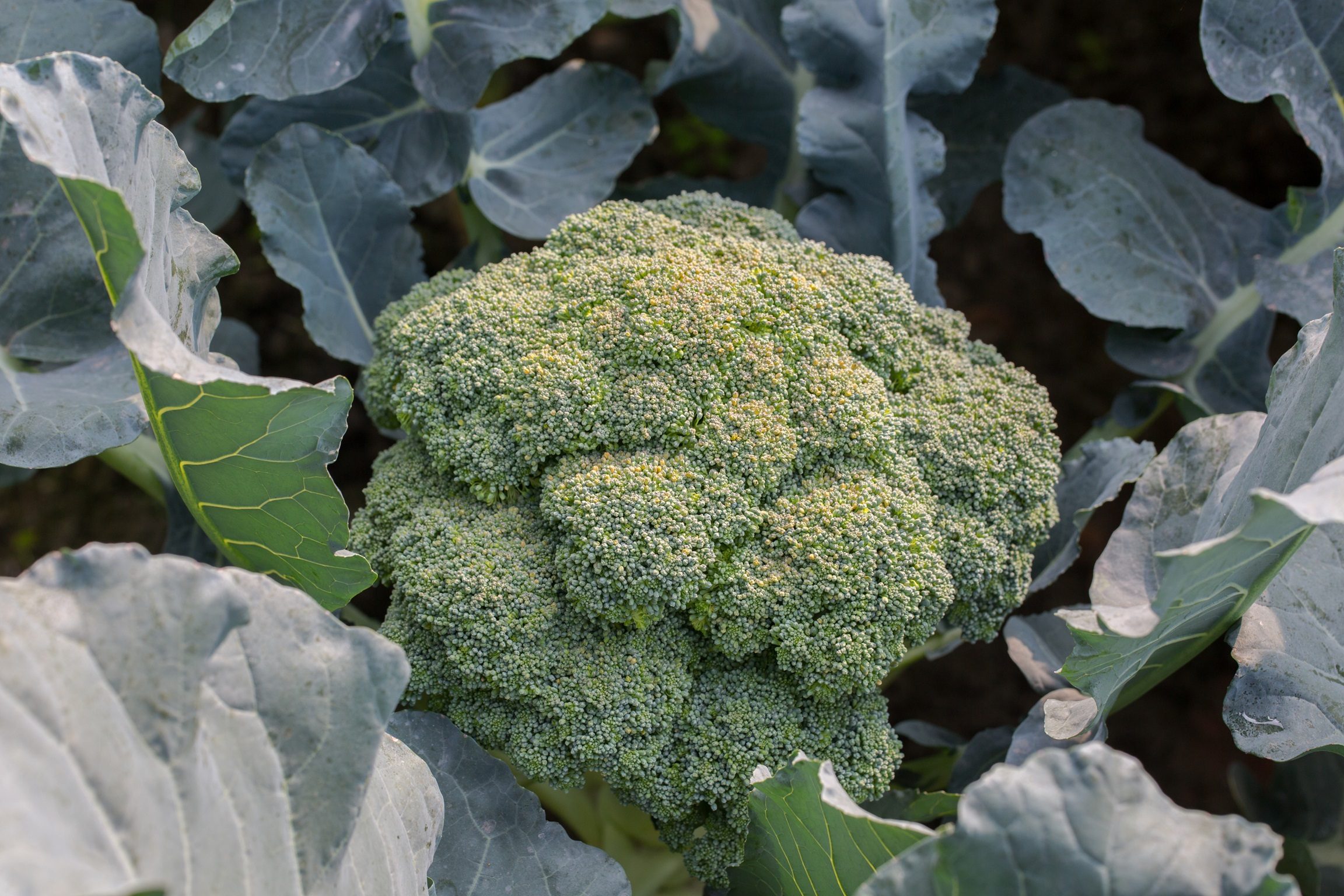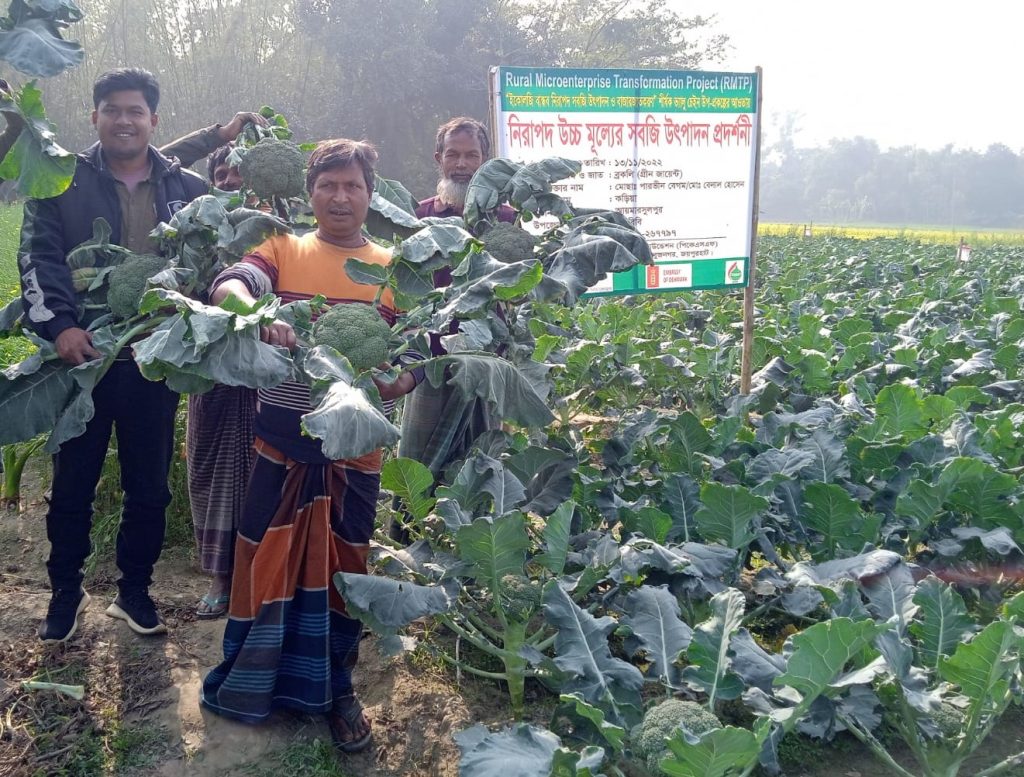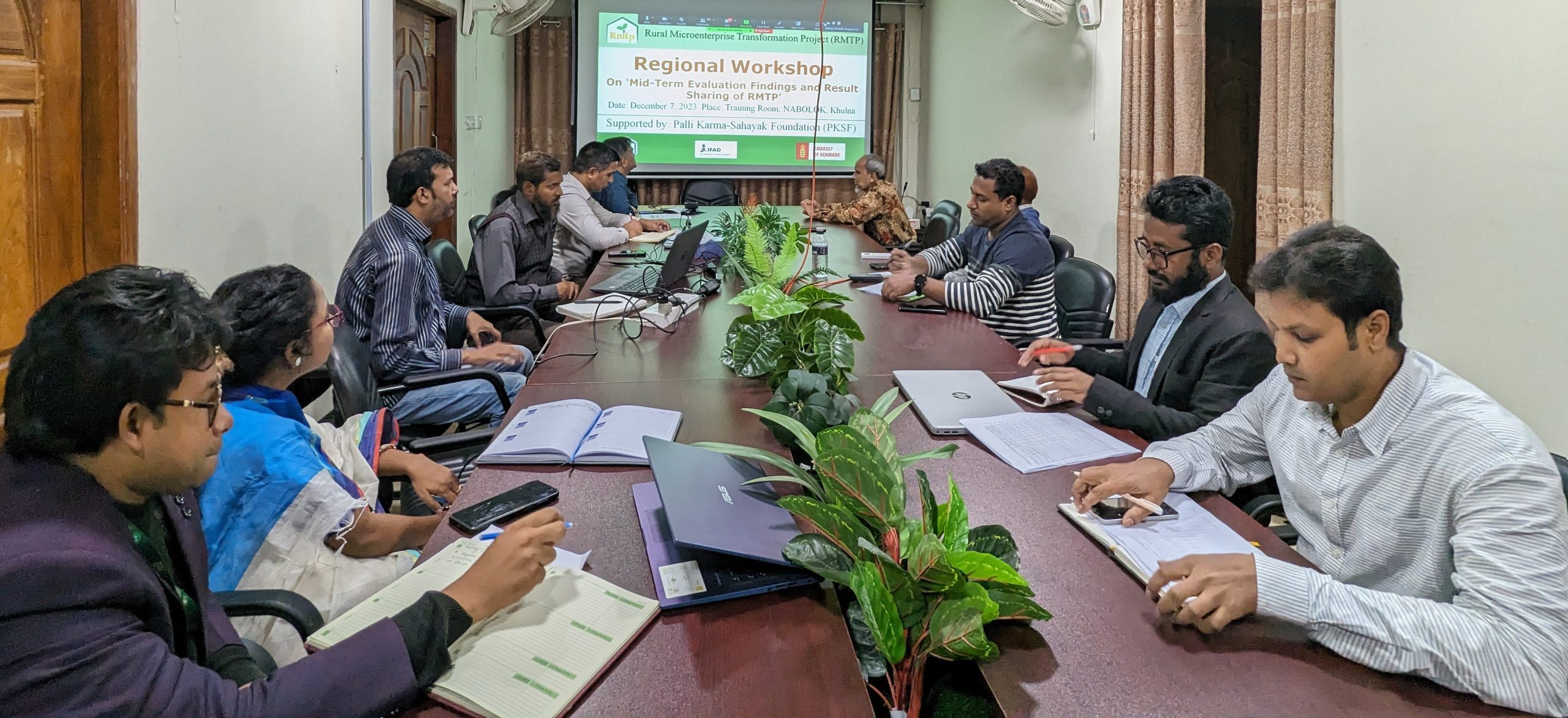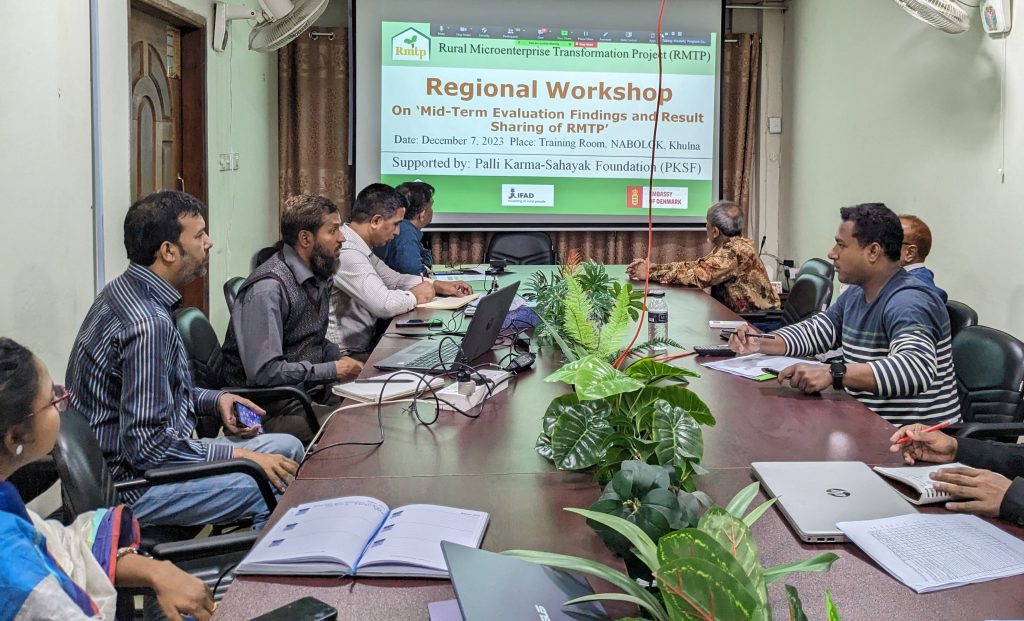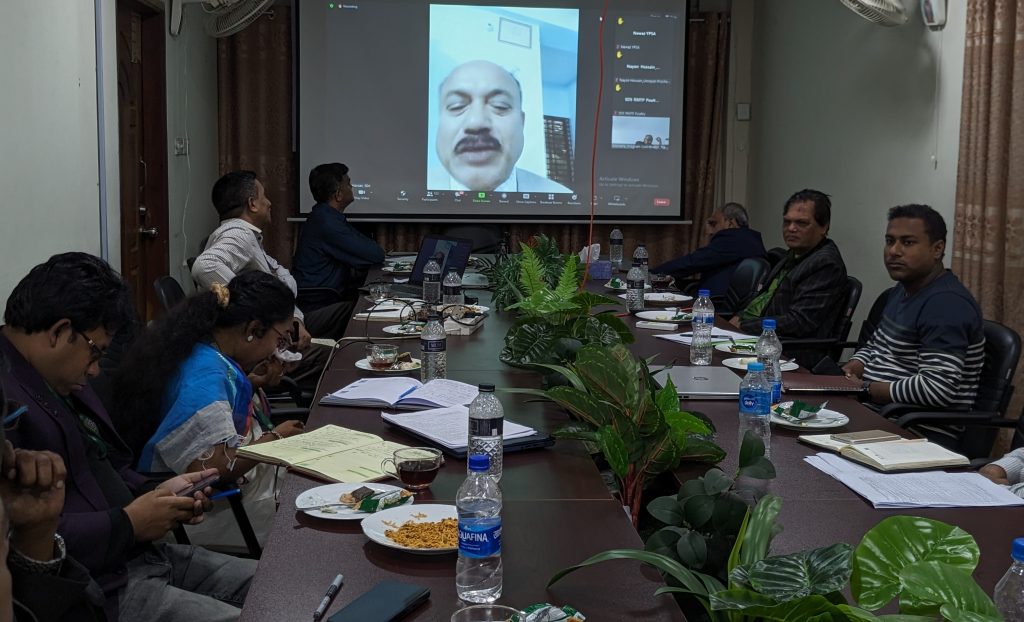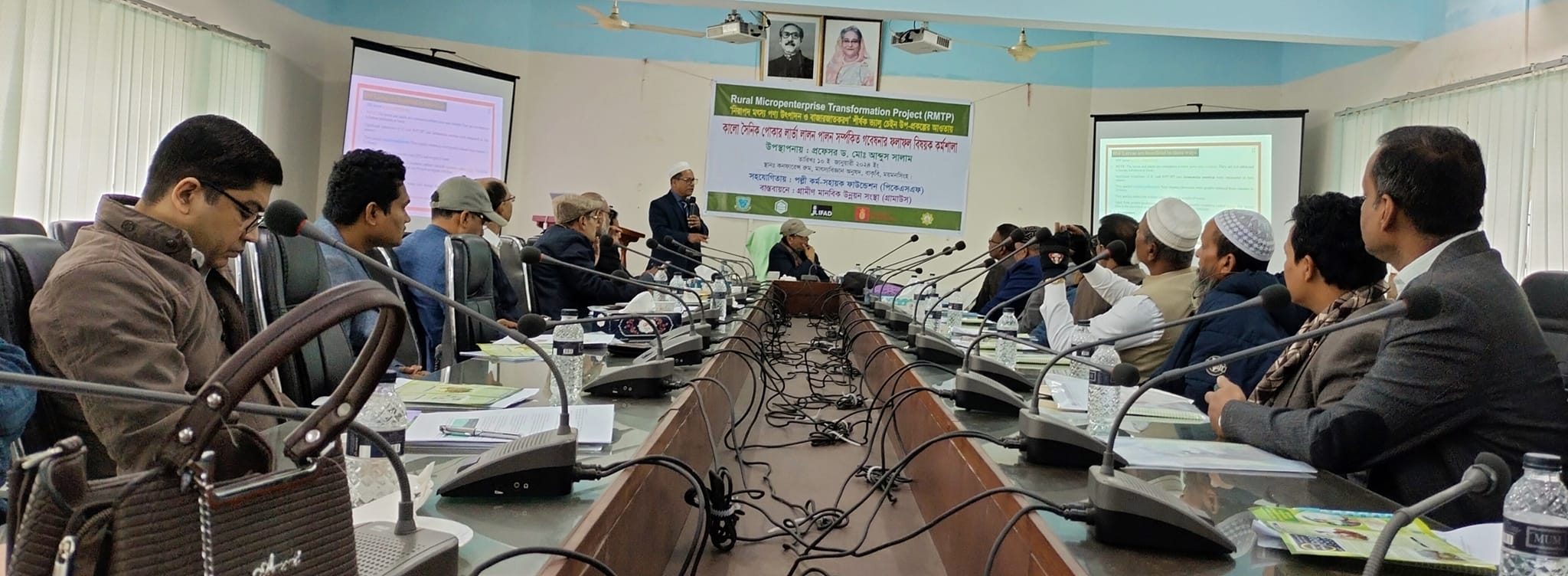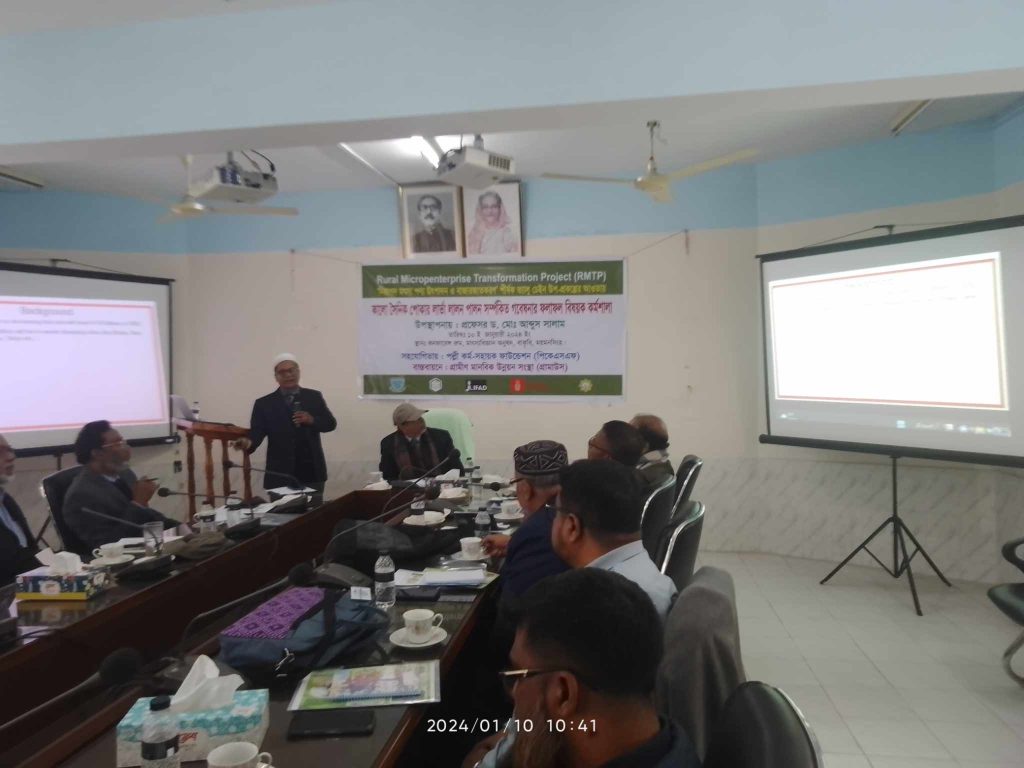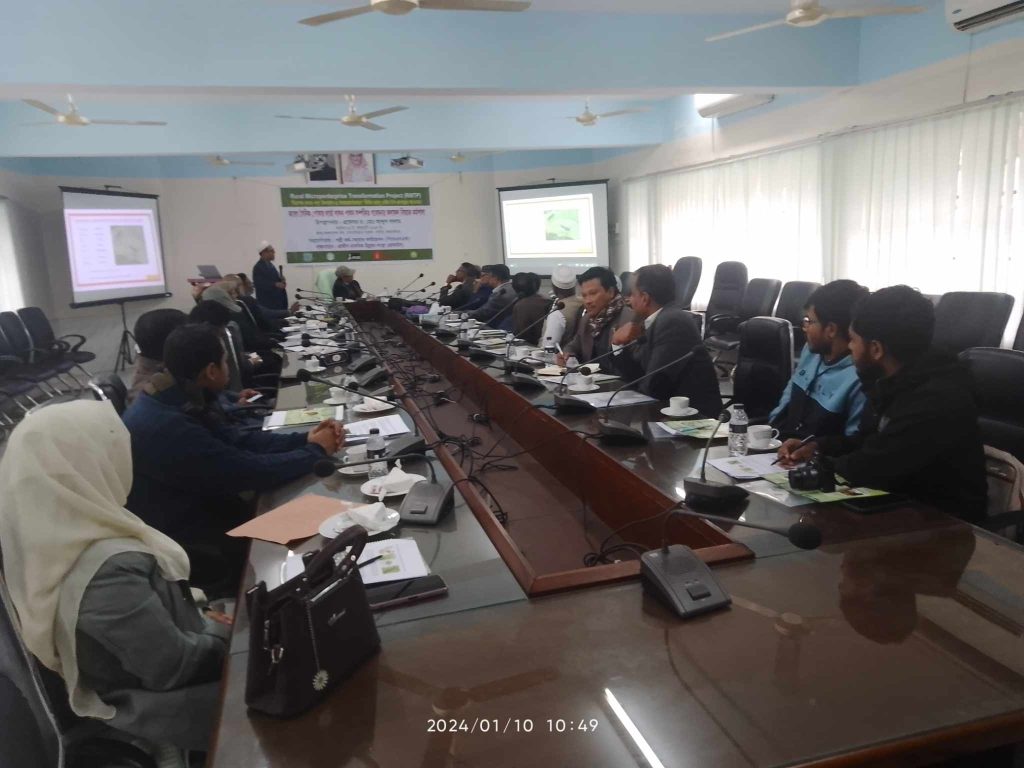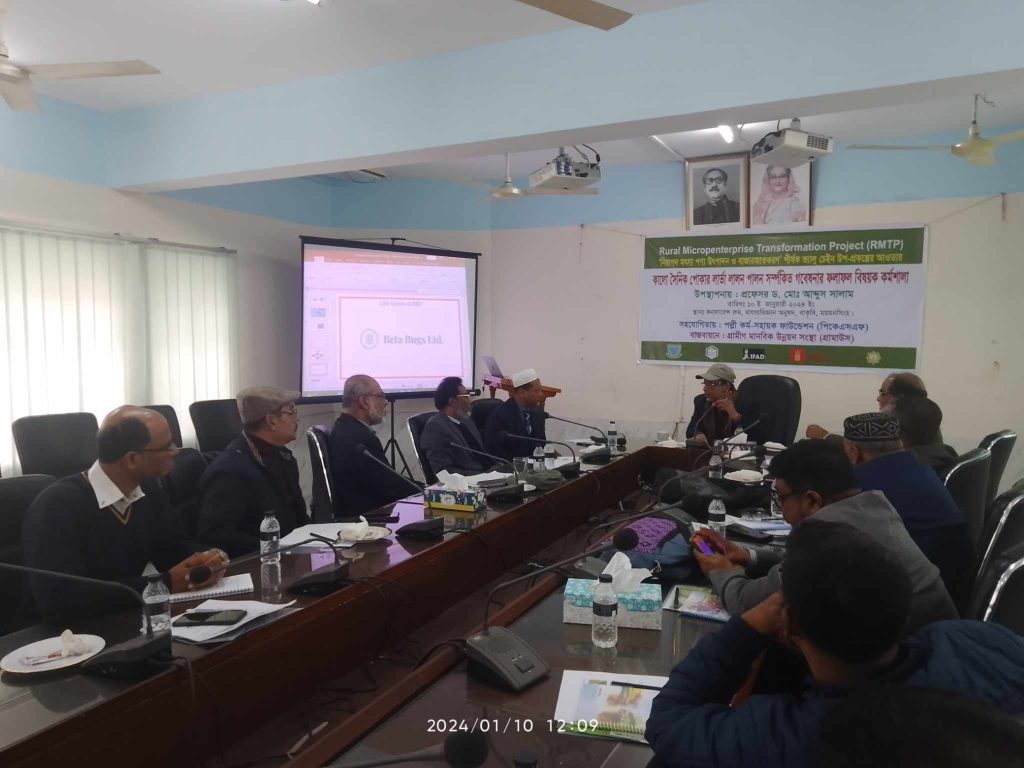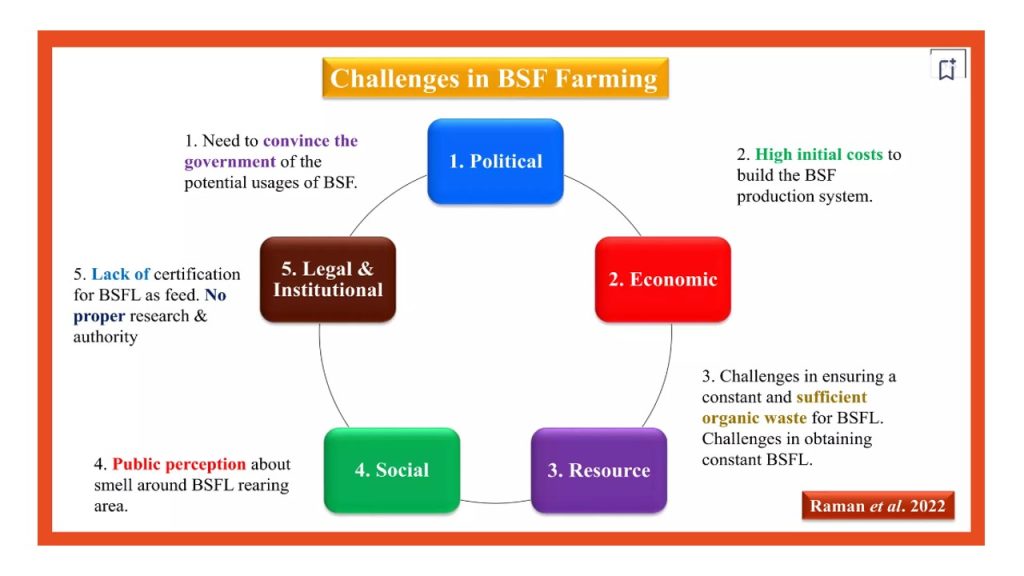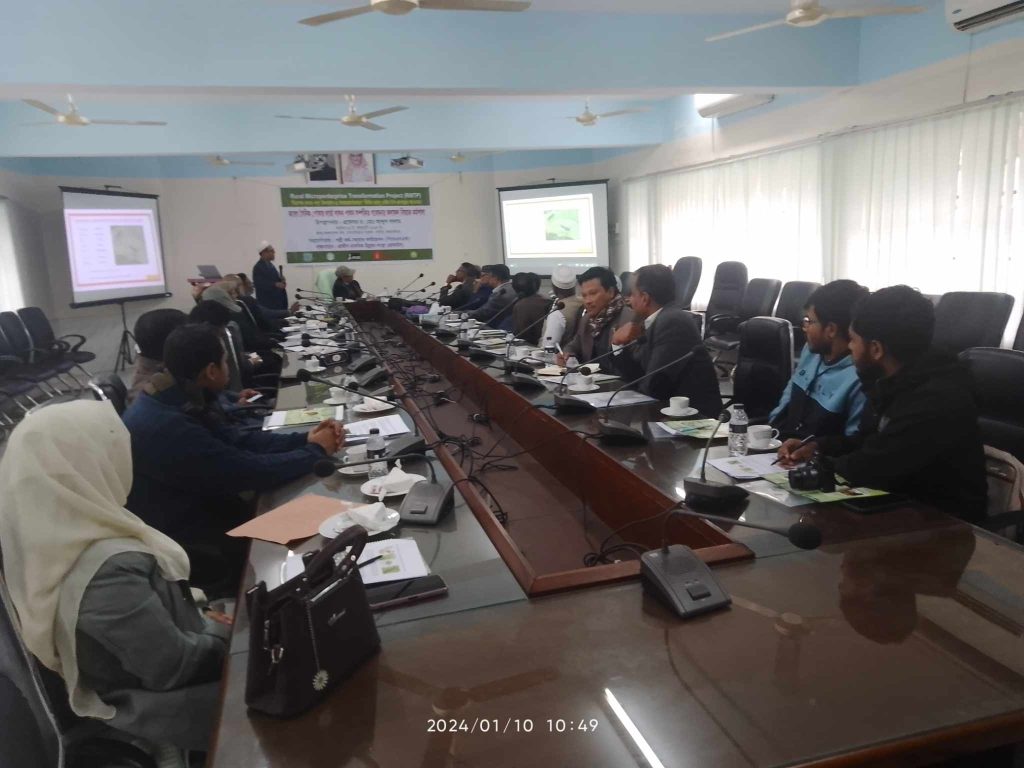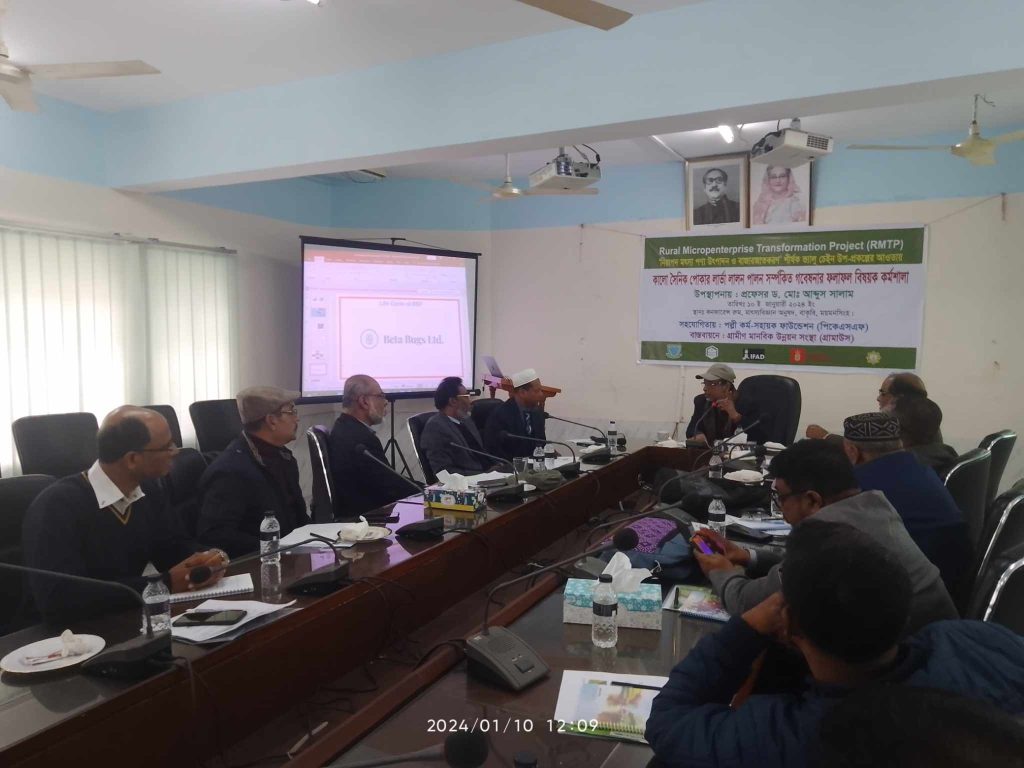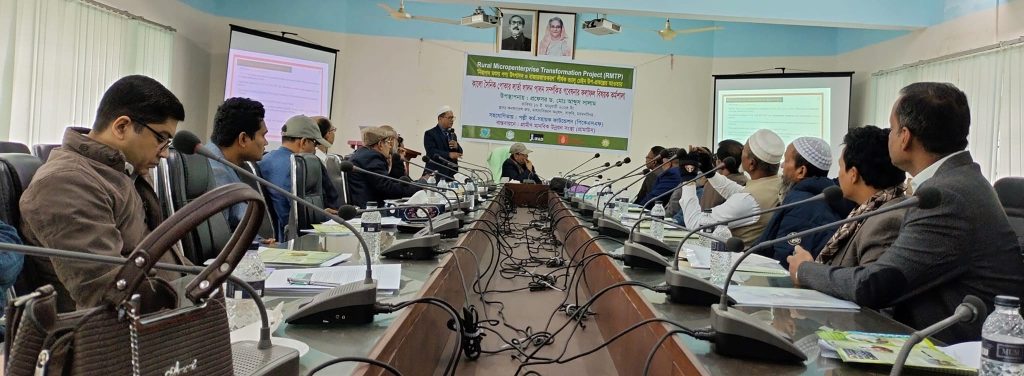Dr. Md. Rafiqul Islam Sadder, Head of the Department of Fisheries Biology and Genetics at BAU, Mymensingh, highlighted the escalating costs of fish farming and the simultaneous decline in dietary protein availability. He noted from today’s report that black soldier fly larvae exhibit high levels of protein, which is a positive aspect in addressing the current challenges in fish farming.
Dr Bapon Dey, Head of the Department of Poultry Science at BAU, Mymensingh, expressed his perspective, stating, “Coming from the poultry sector, upon reviewing the report, I believe that, in addition to its application in fish farming, black soldier fly could emerge as a crucial substitute for soybeans in poultry. I also believe that research of this nature should be conducted more extensively.”
Dr. Muhamod Mehedi Hasan, Head of the Department of Fisheries Technology (FT) at BAU, Mymensingh, emphasized the need for additional research to determine the impact of using black soldier fly larvae on the growth of carp fish and catfish when used as food.
Dr Johir Rayhan, Proprietor of Niharika Fisheries & Hatchery Private Ltd, lauded the innovative initiative for the Mymensingh region. He suggested that BAU, Mymensingh, BFRI, the Department of Fisheries, GRAMAUS, and other Non-Governmental Organizations should take a leading role in scaling up black soldier fly farming to sustain commercial fisheries in the region.
Mr Mahabubul Hasan (Shaheen), a Freelancing Consultant on Feed Meal in the Fish Sector in Bangladesh, pointed out that the cost of good-quality fish feed has increased by BDT 100-200 per kg in the last year, posing a significant obstacle to fish farming. He believes that if black soldier fly larvae can be produced in sufficient quantities, it could play a crucial role in addressing such food-related challenges.
Dr. AKM Nowshad Alom, Dean of the Faculty of Fisheries at Bangladesh Agricultural University, Mymensingh, commended the study as excellent. On behalf of the faculty, he expressed thanks and gratitude to Professor Dr. Md. Abdus Salam, GRAMAUS, and PKSF for implementing this innovative activity. He pledged the Faculty of Fisheries’ full support to facilitate its success.
Conclusion: At the conclusion of the workshop, the chairperson stated that the adult black soldier fly is typically not considered a pest. Given that the larvae have demonstrated effective manure recycling capabilities, the proposed “Black Soldier Fly Manure Management System” aims not only to reduce livestock waste but also to create a food source for fish and other animals. In summary, it is evident that BSF can be considered a viable alternative food for fish and a valuable ingredient in organic fertilizers.
